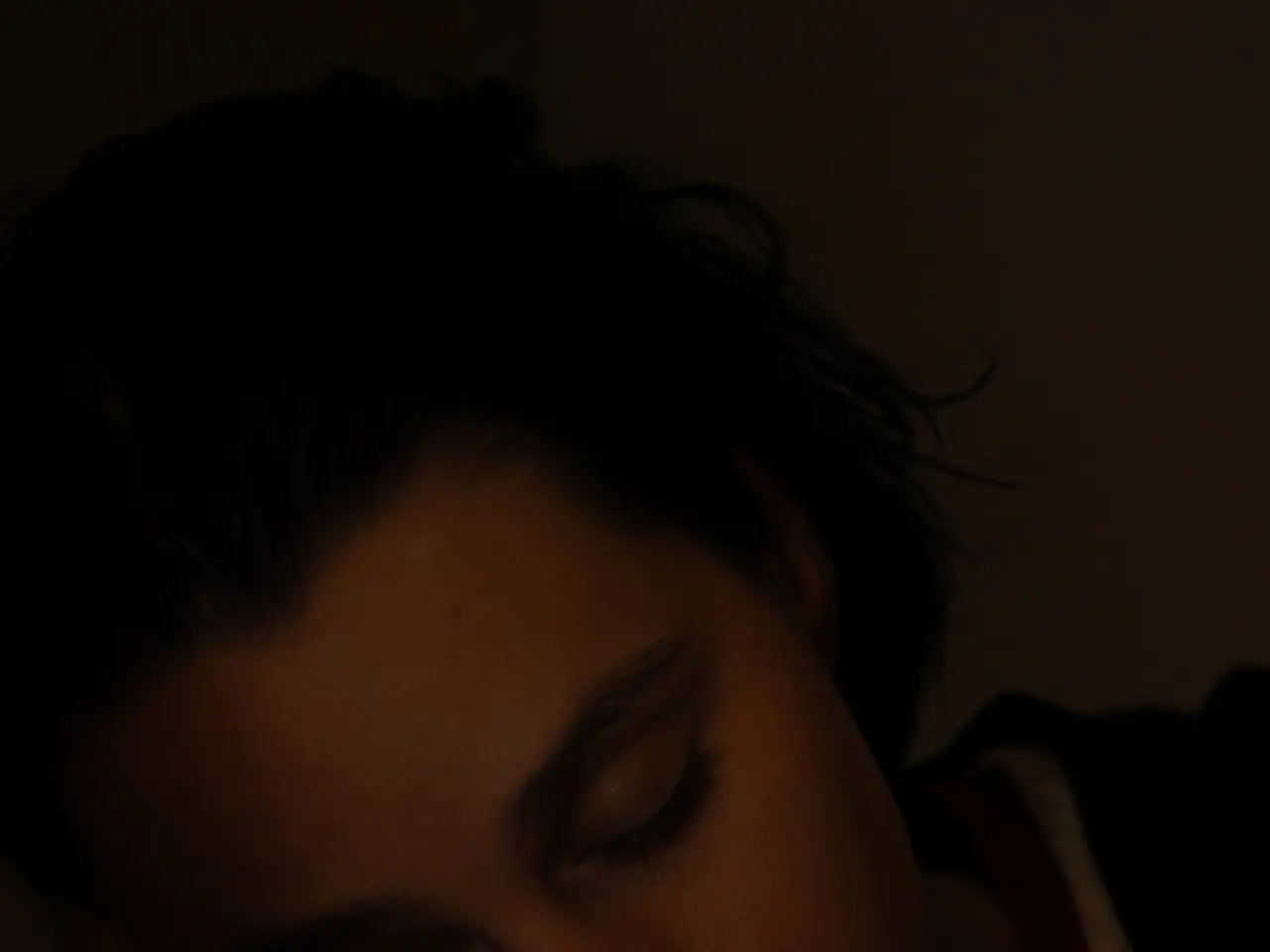Is sleep eluding you regularly... or could it be an excess of slumber causing the issue instead?
In a world where sleep often takes a backseat to the demands of modern life, a particular group is facing a significant sleep deprivation crisis - adolescents. Despite expert recommendations of 8 to 10 hours of sleep per night, a staggering 85% of teenagers report sleeping less than this amount on school nights [1][2].
According to various studies, the consequences of this sleep deficit are far-reaching. Cognitive and academic impairments are common, with sleep-deprived teenagers experiencing concentration difficulties, shortened attention spans, memory problems, and a higher likelihood of dozing off in class [2].
Moreover, sleep deprivation in adolescents is linked to increased risks of mental health issues, such as depression, anxiety, and low self-esteem [1][2]. Interestingly, those who attempt to catch up on sleep during weekends tend to exhibit fewer symptoms of anxiety and depression [1][2].
Behavioral and developmental problems are another concern. Consistent insufficient sleep can contribute to behavioral issues and delayed brain development. Furthermore, night owl sleep patterns (sleeping very late) in teens are associated with these risks [2].
Physical health and growth are also affected. Adolescence is a critical phase of growth and cognitive maturation, requiring more sleep than younger children. Sleep deprivation can interfere with brain development and physical growth spurts [1].
Long-term sleep deprivation can accumulate a 'sleep debt', which impairs immune function and increases overall health risks later in life, including obesity, diabetes, and cardiovascular issues [3][4].
One of the main contributing factors to adolescent sleep deprivation is the natural shift in their circadian rhythm during puberty, causing teens to feel sleepy later at night and want to wake up later in the morning. Early school start times, often around 7:30 a.m., conflict with this cycle, making it hard for teens to get enough sleep [1].
In summary, it is crucial for teenagers to prioritise sleep for optimal mental, cognitive, and physical health. Sleep deprivation in this group leads to academic difficulties, behavioral issues, and increased mental health risks due to a combination of biological changes and environmental factors like early school schedules and device use [1][2][3][5].
It's important to note that sleep patterns and needs vary throughout the lifespan. While newborn babies sleep in three- to four-hour periods, followed by one to two hours awake, on average [6], adults aged 18 and above require around 7 to 9 hours of sleep per night [7].
In adulthood, factors such as jobs, relationships, and living conditions can compete with sleep. Middle-aged adults may experience sleep disturbances due to persistent snoring because of increased weight and regular bathroom visits during the night [8].
In the years following menopause, women's sleep becomes lighter and more fragmented, making it more difficult to maintain long hours of uninterrupted sleep and to remain awake during the day [9].
Long-term sleep loss can have wide-ranging effects on health, and it's worth seeking medical advice for issues such as constant tiredness, low mood, snoring or stopping breathing during sleep, menopausal symptoms, and frequent urination due to prostate issues [10].
As we age, the ability to get the sleep needed may decrease, leading to feelings of sleep deprivation. Adults aged 51-70 may experience sleep disturbances due to factors such as pain, anxiety, depression, stress, increased frequency of urination, and other physical conditions like arthritis, chronic lung disease, certain medications, and heartburn [11].
However, it's important to remember that the need for sleep remains relatively consistent throughout adulthood, and an 85-year-old requires the same amount of sleep they did when they were 25 [7].
References: [1] National Sleep Foundation. (2021). Teen Sleep: What Parents Need to Know. Retrieved from https://www.sleepfoundation.org/articles/teen-sleep-what-parents-need-to-know [2] American Academy of Sleep Medicine. (2021). Adolescent Sleep Needs. Retrieved from https://www.aasm.org/resources/fact-sheets/adolescent-sleep-needs [3] National Institutes of Health. (2021). Sleep and Mental Health. Retrieved from https://www.nimh.nih.gov/health/topics/sleep-and-mental-health/index.shtml [4] Centers for Disease Control and Prevention. (2021). Sleep and Obesity. Retrieved from https://www.cdc.gov/sleep/about_sleep/how_sleep_works/sleep_disorders_obesity.html [5] National Sleep Foundation. (2021). Sleep and Learning. Retrieved from https://www.sleepfoundation.org/articles/sleep-and-learning [6] National Sleep Foundation. (2021). Newborn Sleep. Retrieved from https://www.sleepfoundation.org/articles/newborn-sleep [7] National Sleep Foundation. (2021). How Much Sleep Do We Really Need? Retrieved from https://www.sleepfoundation.org/articles/how-much-sleep-do-we-really-need [8] National Sleep Foundation. (2021). Middle Age and Sleep. Retrieved from https://www.sleepfoundation.org/articles/middle-age-and-sleep [9] National Sleep Foundation. (2021). Menopause and Sleep. Retrieved from https://www.sleepfoundation.org/articles/menopause-and-sleep [10] National Sleep Foundation. (2021). Sleep Disorders and Health Issues. Retrieved from https://www.sleepfoundation.org/articles/sleep-disorders-and-health-issues [11] National Sleep Foundation. (2021). Older Adults and Sleep. Retrieved from https://www.sleepfoundation.org/articles/older-adults-and-sleep
- During their pursuit of health-and-wellness, individuals may find knitting, a relaxing craft, beneficial for promoting restful sleep.
- A study on sleep patterns in adults revealed that maintaining 7 to 9 hours of sleep per night, as recommended, greatly contributes to better mental health and well-being.
- In an effort to address mental-health issues, such as anxiety and depression, health experts often advice on incorporating regular sleep routines into daily life, especially for adolescents.




